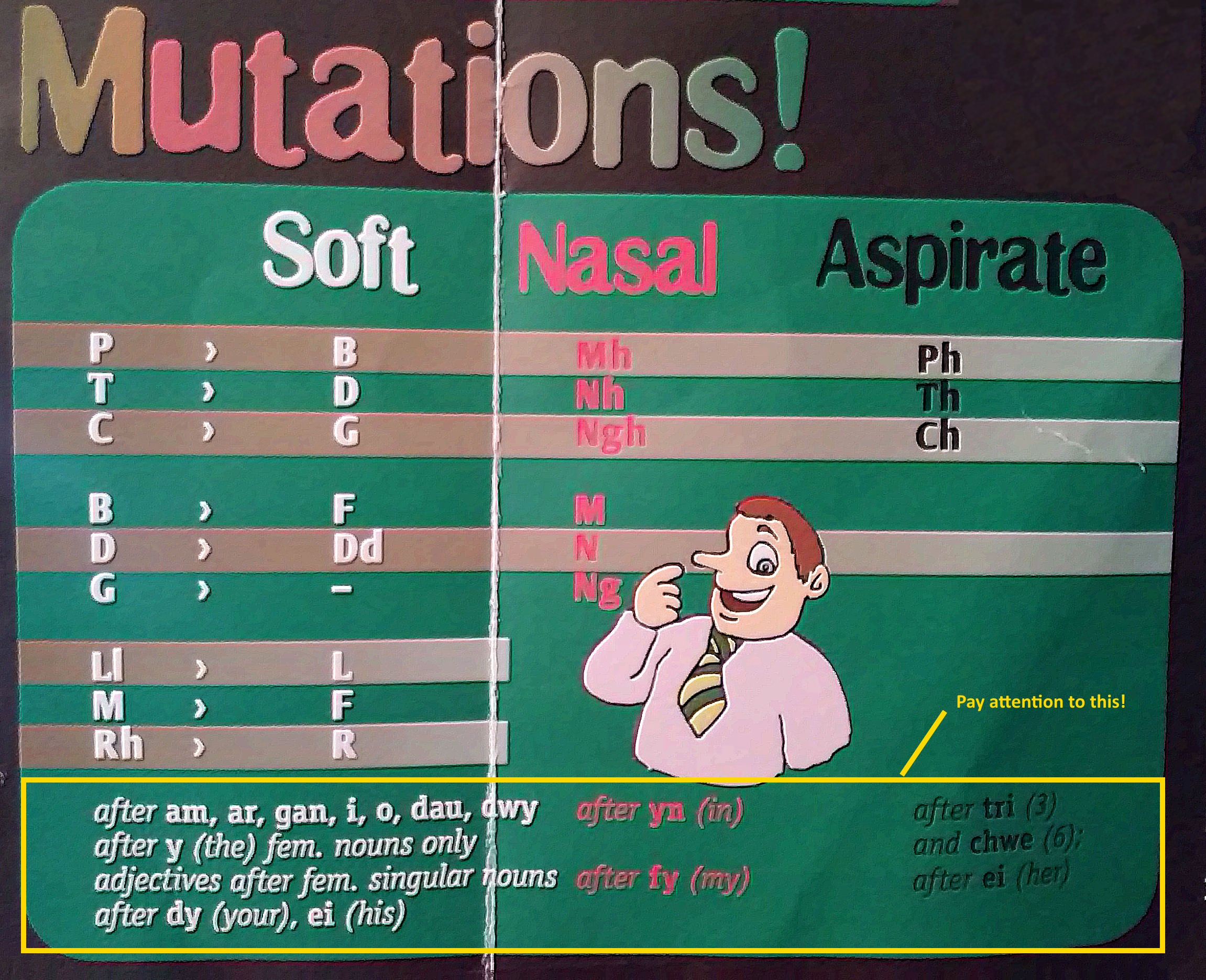As @tatjana says (diolch Tatjana!), each lesson has a vocab file located just under the play button on the website.
HOWEVER…
There is a problem with reading a word that you need to be aware of before using the vocab lists:
The eyes have much more standing with the brain than the ears when it comes to learning things, but pronunciation rules in Welsh are different to those in English, and some Welsh sounds don’t even exist in English. Generally you caan get away with this with consonants, but if your eyes tell you that a vowel is pronounced in a certain way, or that the accent is in a certain place in a written word, even if your ears tell you differently, you will find it hard work to correct.
Worse still, it is these souinds (vowels and accents) that are often the difference between sounding natural and sounding as if you’re struggling, and can lead to misunderstandings far more easily than a misheard f / dd, which most speakers will mis-hear your mispronunciation back to it’s correct form anyway!
Conversely, if you are speaking Welsh that you have heard, and realise that you have been saying a word wrong for months, (this is especially true for simple changes like f / dd or sh / ll) you will generally be able to change them quite simply.
Actually, Nicola, in another thread where you are discussing a word confusion, you spell a Welsh word in a way that makes your (correct) pronunciation obvious, even though it is not the actual correct spelling. I’ve spoken to a lot of new speakers who have found it more useful recording words in their own spellings that make sense to what they are hearing, rather than trying to remember them according to the more confusing “correct” Welsh spelling, so that is something for you to bear in mind before going to the vocab lists.
As Hendrick says, though, it’s a good idea to check consonant patterns - is it a dd or an f? - with a quick glance at the vocab, but try to avoid “correcting” your vowel sounds according to what you see: concentrate on trying to genuninely listen to the pronunciations in the lessons/.
I hope that makes sense. What is important, of course, is that you do what works for you. You are much better getting some vowel sounds wrong by doing something a little bit unperfectly (my spell-checker tells me that unperfectly isn;t a word. Boo!), than giving up because you’re sticking to the “rules” means that you find the course too difficult!

